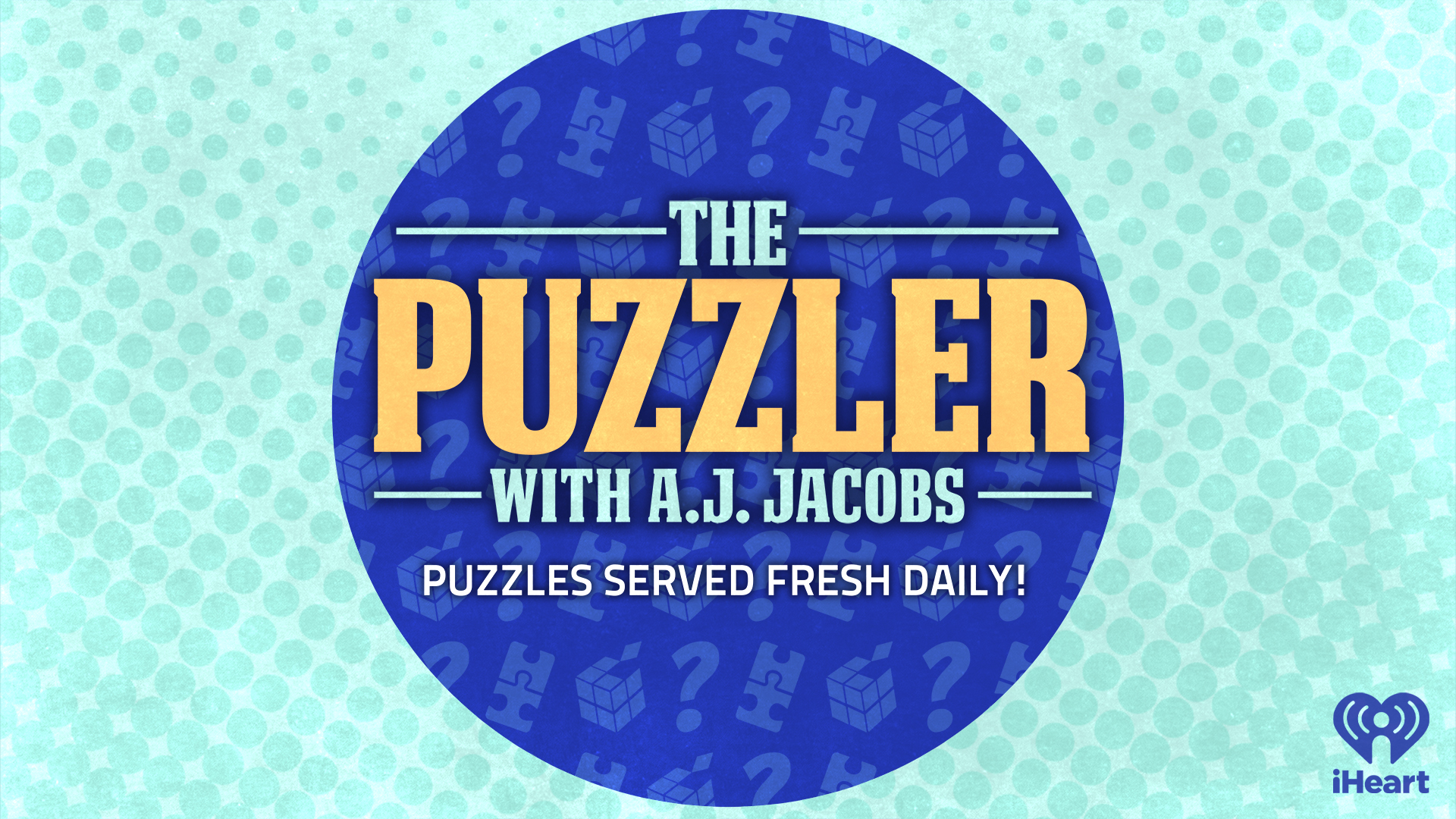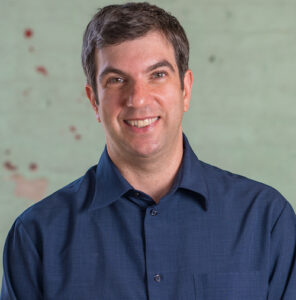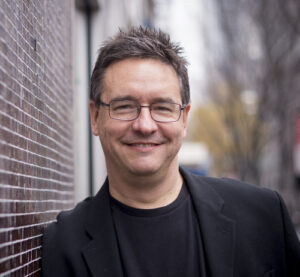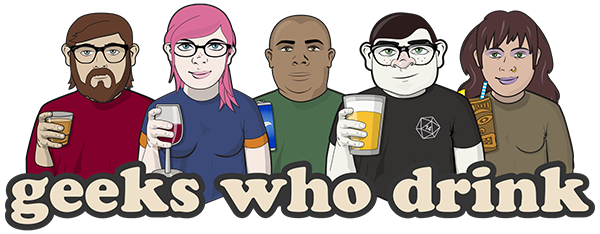The “Ah-Ha” Moment
We talk with The Puzzler about finding the right amount of struggle

“It’s not the puzzles you solve, it’s the people you meet.”
In his 2022 book The Puzzler, A.J. Jacobs wrote that he hears that sentiment a lot in the puzzling community – that, despite the very personal emotional journey that’s often involved in solving a puzzle, there’s a compelling social energy in communing with others who know and love that struggle.
His latest project examines that further. Begun in October – and announced, among others, by our crossword columnist – The Puzzler with A.J. Jacobs is a new daily short-form podcast in which longtime puzzlemaster Greg Pliska joins Jacobs in posing various brain-teasing puzzles to a stream of celebrity guests that has included everyone from quiz-world icons such as Peter Sagal and Ken Jennings, to comics like Roy Wood Jr. and Ophira Eisenberg.

I sat down with A.J. and Greg to talk about the secrets to the show’s Top 20 success. The following conversation has been edited for length and clarity.
Christopher Short: Coming at it as somebody who’s in the same business, what strikes me most about listening to the podcast is that it’s very intimate and very vulnerable.
A.J. Jacobs: Well, I certainly feel vulnerable. Because I’ll write some of the puzzles, but the puzzles that Greg writes, I often don’t know the answer, and… I’m okay looking like an idiot. I think that makes good radio when the host looks like an idiot, and I am just very gifted at looking like an idiot. I feel blessed in that way.
Greg Pliska: Well, I also like to imagine at least that the (guests) are familiar with A.J. as – I would not use the word “idiot,” I would use the word “everyman” – a guy who’s just willing to dive in, whether he knows anything or not, and he’s curious and interested and ready to say, “I have no idea, but this is fun.” I hope that even if they don’t know that, they get that energy right away. We are never trying to make somebody look bad. We want them to look great, right?
A.J.: One thing we’ve been trying to balance is, we want our guests to look good and solve the puzzle, but we also want them to struggle just a little. Because that’s more interesting, and that lets the listener chime in. So this is interesting, because Greg gives some of the puzzles and I give some of the puzzles; I feel Greg has a higher tolerance for letting people…
Greg: For dead air, basically.
A.J.: I give out hints too easily. So I’m trying to pull back and – you know, we never let people sound dumb.
Christopher: A.J., I’m reminded of your description (in the book) of the emotional journey of solving a crossword – those steps of frustration and anger and despair, leading to catharsis. You seem to me like a shepherd for these guests through those stages, right? It’s not just filling dead air.
A.J.: Exactly. You do have to have a little bit – I don’t know if it’s suffering, but frustration – to get the proper “ah-ha” moment. To get that dopamine, you do have to work for it. I remember reading Puzzle Craft, and (Mike Selinker) argues, you have to be somewhat of a sadist. I’d be interested to know Greg’s thoughts on that: How much do you have to want the people to suffer before they get that “ah-ha” moment?

Greg: I honestly don’t want them to suffer at all. Because I use my perspective as a solver: I want to be challenged, and I want to struggle to find my way through the thing, but I want to find my way. And I hope solvers do the same thing.
Certainly if I have a failing, or among my many failings as a puzzle constructor, it’s sometimes creating something that’s harder than the audience I’m working with. Because I also solve with a team on the MIT Mystery Hunt, and there’s a huge range of people I’ve solved with, there are times when I’ll create something for a more general population and realize, as people are staring at it, that they’re not getting the “ah-ha” that I’d hope they would get. And then I’m eager to give them the nudges, as you say, Christopher, taking them through the stages of the puzzle. Because I want them to have the satisfaction and the thrill of getting there, not sitting there and suffering. There’s no joy in that, I don’t think.
One of my favorite (Puzzler) episodes is with Baratunde Thurston. He has a reaction to one of the puzzles that is like, “Huh. Oh. Ahhhh! Ohhhh!” It’s like, he goes through the stages in several exclamations of getting it – you know, being puzzled, being bewildered, getting it, being amazed at what it is. It’s just a great audible version of what I think we’re talking about.
A.J.: He said everything but “eureka.”
Christopher: It must be very interesting writing for such a range of guests as well. Having Ken Jennings on, very early in the run: Is that intimidating as a question writer? I don’t know how I would go about writing a round of trivia questions for Ken Jennings at this point.
A.J.: Yeah, I figured he would get almost all of them. We did – it was very exciting – we stumped him on one question, and it was almost delightfully appropriate or ironically appropriate, because the one we stumped him on was a question about Jeopardy! We had a “Name That Game Show Sound Effect,” where we would play dings and buzzes, and the one he did not get was a glissando, a harp sound from the original Art Fleming Jeopardy! He’s a great sport, because he doesn’t mind missing a trivia question.
Christopher: He doesn’t have much to prove.
A.J.: There you go.
Greg: Exactly, fair point. I will say too, Christopher, we will talk in advance about the guest. Sometimes one of our producers will know the guest and say, “Listen, they love doing puzzles, they do all kinds of different things. You can really give it to ‘em.” Or they’ll say, “So-and-so is really actually nervous about this, so go easy on them.” And it gives us a little bit of a sense of what kinds of puzzles to write.
Part of the challenge with audio puzzles is, you know, you give people an anagram when you write that down. It’s really easy to see the letters and mix them around. But if you’re doing it in your head, that’s a much harder thing for a lot of people.
Christopher: Do you mean for the audience, or do you deny them pencil and paper?
Greg: No, we don’t deny them pencil and paper. In fact, we will often say, “This puzzle would be helpful to have pencil and paper.”
Christopher: Good. I was going to recast your answer earlier, about not being cruel.
Greg: “Please tie yourself to your chair before turning on the Zoom.”
A.J.: But yeah, well, I know that some people listen in their cars, so we don’t want people scribbling in their car. We don’t want any accidents on our hands.
But I do think we’ve tried to think about what makes a good audio puzzle, because it’s a different genre. So that’s one of the ones we came up with, you might have heard, it’s this sort of an audio version of a rebus, where we do “bana… na”, and that’s “banana split.” So it’s, we say a word, but in a way or a tone or an accent that clues the answer. And I love that. And Greg is great – he’s also a musician, so he comes up with musical puzzles. We did one where the answers all had the sound “po,” like in (the song) “Poker Face,” and you had to say it like “po-po-po-po.”
Christopher: When we started this website, there was a lot of discussion about, what are we counting under the umbrella of knowledge-based entertainment, as opposed to something else? And with The Puzzler I think that there’s a good mixture of stuff that’s testing knowledge and then stuff that’s, if you will, the Final Jeopardy model: there are multiple steps involved and, well, you’ve got 30 seconds. So I wonder how that plays into your sense of fairness, and not stumping folks. Is that a fader that you ride as you try to find the right tone for a puzzle?
Greg: I think we are always coming at this from the puzzle direction, and not the trivia direction. There’s one puzzle I created that was going to be Wikipedia articles about state name etymologies, with the states removed from the paragraph. It was sort of spun off of Redactle, which is the Wordle spinoff where you fill in the Wikipedia article. And it sort of died on the vine, because it felt too much like just a trivia quiz. There wasn’t any game or puzzle to it.
And I think we shy away from something like that – whereas, we’ll do a kind of “missing link” puzzle, where there will be a series of what are – basically trivia questions, knowledge-based questions about a word or a phrase. But at the end of it, you have four or five words and phrases that also link together in some way, and that’s the puzzle wrinkle to it.
A.J.: And I want to echo that. I mean, there is some element of trivia to it, but it always is in a puzzle environment. And I think that’s what you do very well at Geeks Who Drink. Your questions, as you say on your website, it’s not just like, you know, “What is the capital of Ecuador?” You give a very clever twist on it. So the listener has to first solve the puzzle of the question like, what is the information they want? And then they have to know the answer. So you have a little puzzle, seemingly, embedded within the trivia question.
And we try to do that too. So, for instance, one of the ones we did with Ken Jennings was where the answers were all sentences with a country, and also a word that was the first three letters of a country. So “pan” in “Panama,” or “arm” in “Armenia.” So you did have to know a little something about the country, because the clues involved that, but then you could use the puzzle to help you solve it. Even if you didn’t know the capital of Armenia, you could be like, “well, I do know that it’s about breaking a part of the body, and let’s see, an arm is something people break. So maybe it’s an arm and – oh, Armenia!” So there are ways to solve it, even if you don’t know the trivia.
Christopher: Of course. And that goes back to the whole thing about not wanting anybody to feel stupid. The only way to make somebody feel stupid, I think, is to ask them a question that they have no hope of answering. As long as you feel like you almost got there, then it’s no harm, no foul, right?
A.J.: Right.
